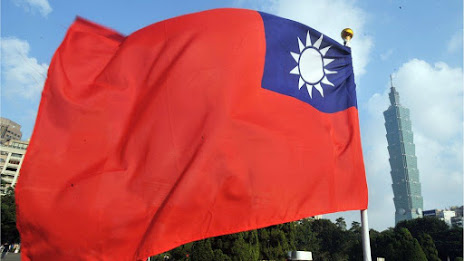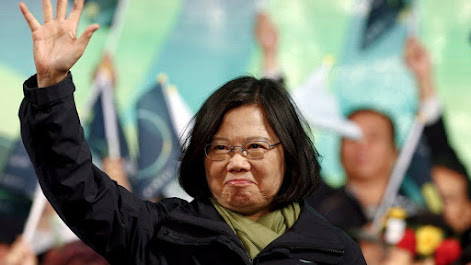Whether it is a bluff or a real threat of invasion, the rise in Chinese military activity in Taiwan over a previous couple of months has caused global concern.
At the guts of the divide is that the Chinese government sees Taiwan as a breakaway province that will, eventually, be a part of the country again.
Many Taiwanese people disagree. They feel they in effect have a separate nation - whether or not independence is ever officially declared.
What is the history of this tension?
Going back to the start - the primary known settlers in Taiwan were Austronesian tribal people, who are thought to possess come from modern-day southern China.
The island seems to possess first appeared in Chinese records in AD239 when an emperor sent an expeditionary force to explore the world - something Beijing uses to back its territorial claim.
After a comparatively brief spell as a Dutch colony (1624-1661), Taiwan was administered by China's Qing from 1683 to 1895.
From the 17th Century, significant numbers of migrants started coming back from China, often fleeing turmoil or hardship. Most were Hoklo Chinese from Fujian (Fukien) province or Hakka Chinese, largely from Guangdong. The descendants of those two migrations are now far and away from the most important demographic groups on the island.
In 1895, Japan won the primary Chino-Japanese War, and therefore the Qing government had to cede Taiwan to Japan. After war Two, Japan surrendered and relinquished control of territory it had taken from China. The Republic of China - one among the victors within the war - began ruling Taiwan with the consent of its allies, the US and the UK.
But within the next few years war broke call at China, and therefore the then-leader Chiang Kai-shek's troops were beaten back by Mao Zedong's Communist armies.
Chiang and therefore the remnants of his Kuomintang (KMT) government fled to Taiwan in 1949. This group, mentioned as Mainland Chinese then making up 1.5m people, dominated Taiwan's politics for several years - albeit they only account for 14% of the population.
Having inherited an efficient dictatorship, facing resistance from local people resentful of authoritarian rule and struggling from a growing democracy movement, Chiang's son, Chiang Ching-Kuo, began allowing a process of democratization.
President Lee Teng-hui, referred to as Taiwan's "father of democracy", led constitutional changes towards a more democratic political layout, which eventually led to the election of the island's first non-KMT president, Chen Shui-bian, in 2000.
What about recent hostility?
Relations between China and Taiwan started improving within the 1980s. China suggests a formula, referred to as "one country, two systems", under which Taiwan would tend significant autonomy if it accepted Chinese reunification.
This system was established in Hong Kong to be used as something of a showcase to entice Taiwanese people back to the mainland.
Taiwan rejected the offer, but it did relax rules on visits to and investment in China. In 1991, it also proclaimed the war with the People's Republic of China on the mainland to be over.
There were also limited talks between the 2 sides' unofficial representatives, though Beijing's insistence that Taiwan's Republic of China (ROC) government is illegitimate meant government-to-government meetings couldn't happen.
And in 2000, when Taiwan elected Chen Shui-bian as president, Beijing was alarmed. Mr. Chen had openly backed "independence".
A year after Mr. Chen was re-elected in 2004, China passed a so-called anti-secession law, stating China's right to use "non-peaceful means" against Taiwan if it tried to "secede" from China.
Mr. Chen was succeeded by Ma Ying-jeou, who, after taking office in 2008, sought to enhance relations with China through economic agreements.
Eight years later, in 2016, Taiwan's current president Tsai Ing-wen was elected. She leads the Democratic Progressive Party (DPP), which leans towards eventual official independence from China.








0 Comments